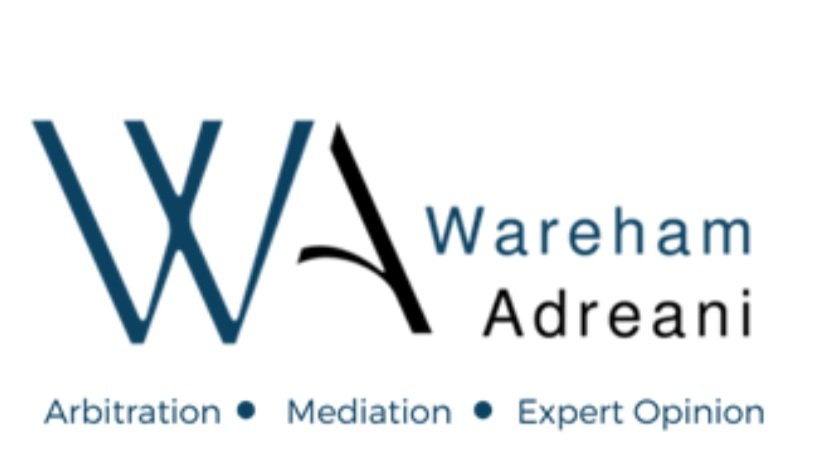Arbitration - My Approach
Arbitration
Selected Cases
-
PF v PF (International Arb Case): Appointed under CIArb rules and AA 1996, Seat (England). Sole Arbitrator appointed to determine issue of ‘specific performance’ of contract. Settled following Procedural order with Award for Claimant by consent.
PF v MG (International Arb Case): Appointed under CIArb rules and AA 1996, Seat (England). Sole Arbitrator appointed to determine performance and dereliction of contract.
-
DE v EQ (International -Ad Hoc): Arbitration under UNCITRAL rules to determine claims relating to respondents failure to supply goods, counter claim (fraud) and multiple personae. Settled following issue of Procedural Order.
CIR v RC (International - Ad Hoc): CIArb exam Arbitration under UNICTRAL model rules, Construction and failure of design and build project. Issues of jurisdiction, Bifurcation of proceedings. Contested hearing and issues of admissibility of Evidence , and award rendered to Claimant with interest.
-
GG v JJ Ltd (ABTA- Domestic): Under the ABTA Arbitration Rules & Arbitration Act 1996, claim for misrepresentation and breach of contract, specific performance. Award to Respondent.
HE v VV Ltd (ABTA- Domestic): Under the ABTA Arbitration Rules & Arbitration Act 1996, claim for breach of contract, specific performance. Award to Claimant.
EE v JJ Ltd (ABTA- Domestic): Under the ABTA Arbitration Rules & Arbitration Act 1996, claim for breach of contract, specific performance. Procedural award and Partial Award to Claimant.
GG v TT Ltd (ABTA- Domestic): Under the ABTA Arbitration Rules & Arbitration Act 1996, claim for breach of contract, specific performance, Personal Injury. Award to Respondent.
HH v TT Ltd (ABTA- Domestic): Under the ABTA Arbitration Rules & Arbitration Act 1996, claim for breach of contract, specific performance. Nuisance. Award to Respondent.
DD v TT (ABTA- Domestic): Under the ABTA Arbitration Rules & Arbitration Act 1996, claim for breach of contract, specific performance. Nuisance. Award to Claimant.
LL v TT (ABTA- Domestic): Under the ABTA Arbitration Rules & Arbitration Act 1996, Travel Regulations 2018, claim for breach of contract, specific performance, Loss of Enjoyment, Lack of Conformity, Multiple claims for Injury. Award to Claimant.
JJ v OO (ABTA- Domestic): Under the ABTA Arbitration Rules & Arbitration Act 1996, Travel Regulations 2018, claim for breach of contract, specific performance, Loss of Enjoyment, Lack of Conformity, Award to Respondent.
CC v TT Ltd (ABTA- Domestic): Under the ABTA Arbitration Rules & Arbitration Act 1996, Travel Regulations 2018, claim for breach of contract, specific performance, Loss of Enjoyment, Lack of Conformity, Award to Respondent
CC v JJ Ltd (ABTA- Domestic): Under the ABTA Arbitration Rules & Arbitration Act 1996, Travel Regulations 2018, claim for breach of contract, specific performance, Loss of Enjoyment, Lack of Conformity, Injury, Award to Respondent
Arbitration is a formal process whereby a tribunal hears a claim(s) and supporting evidence (written and oral) by parties in dispute.
A binding decision is made which is enforceable upon the parties.
A distinct advantage of Arbitration is its ability to be flexible, confidential and swifter than a traditional court process.
Arbitration is very common in commercial disputes of an ‘international’ nature where differing laws may apply, with parties from different countries. Arbitration sits ‘above country’ so that neither party may have an advantage of the law, the court or the judiciary. It is truly ‘neutral’ in its application.
Arbitration is often on the basis of an enactment of the parties dispute resolution clause. It is often institutional but may also be ‘ad hoc’ (using the parties own bespoke rules and seat).
When domestic in nature, disputes are heard according to the country’s laws, the arbitral institution laws and in the country of the dispute. Where differing nations are represented, parties are able to chose the applicable law, the seat, the rules/institution and the Arbitrator.
An important aspect of Arbitration is the ability to use ‘specialist’ Arbitrators rather than a local judge.
This is very important in Health and Life Science disputes where matters are often extremely complex, technical and require knowledge of both Law and Health/Life Sciences.
The Arbitrator who is equally comfortable with the medical complexity as well as the legal framework is a distinct advantage in these very complex disputes.
Arbitration in the Healthcare and Life Science sectors may commonly concern:
Licensing and Infringement: Disputes arising from licensing agreements, including patent infringement claims, royalty payments, and intellectual property ownership issues.
Research and Development Agreements: Disputes related to collaborative research and development projects, such as milestone payments, failure to meet performance obligations, and access to proprietary data.
Clinical Trials and Regulatory Matters: Disputes concerning clinical trial design, data ownership, regulatory compliance, and marketing authorization for new medical products.
Product Liability and Insurance Claims: Disputes arising from product liability claims, insurance coverage for medical devices or pharmaceuticals, and adverse events related to medical products.
Joint Ventures and Acquisitions: Disputes arising from joint venture agreements, merger and acquisition deals, and shareholder disputes in life sciences companies.
My unique blend of medical and legal qualifications, combined with a Fellowship of the Chartered Institute of Arbitrators allows me to concentrate on the facts at hand with a reduced need for explanations and Expert reports. The result is a ‘judge who understands the subject’ a more efficient and less costly process with a greatly reduced chance of ‘challenge’.


